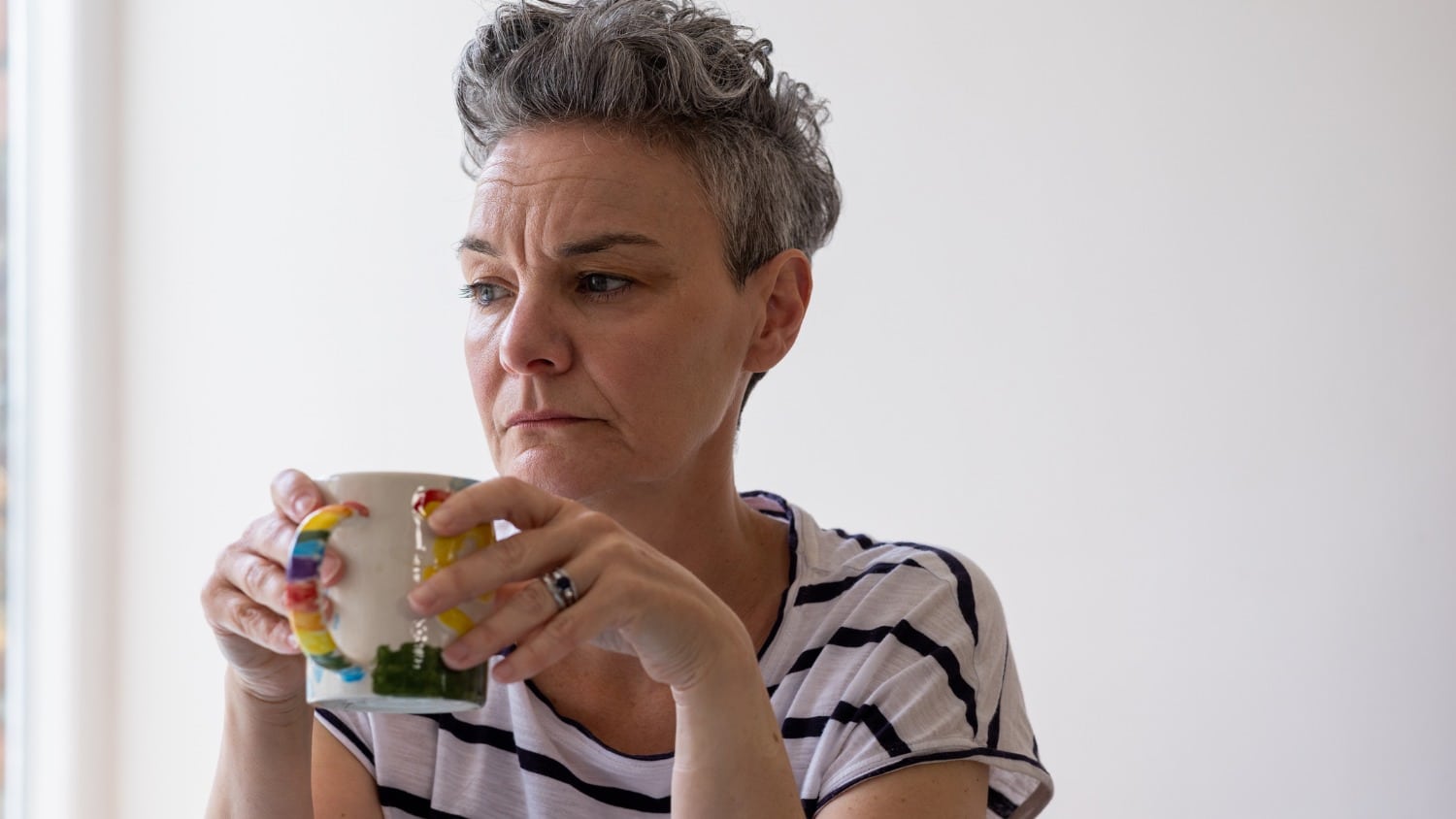
What Makes Adult Children Pick the Road of Estrangement?
Estrangement, the widespread and stigmatized condition describing cutting off one family member from one or more family members, is becoming increasingly common. Estrangement can mean cutting ties completely with no contact or little contact with emotional distancing.
When an adult child cuts ties from one or both parents, they choose to disconnect from a relationship they believe is unmanageable. Estrangement is painful and usually talked about behind closed doors. But in recent decades, there are many resources for the adult child to recognize unhealthy patterns and choose to separate.
Parents confronted with losing the relationship status with their adult child go through grieving and finding a way to reconcile.
Estrangement is a grueling matter, complicated and ambiguous. The arrangement hurts all involved parties. Research studies have yet to catch up to the demand for information to illuminate and make sense of this harsh condition.
Types of Estranged Relationships
We know there is a great divide in perspectives between the estranged and their parents. Some estranged family members’ struggles involve addictions, mental illness, abuse, and toxic behaviors. Unraveling generational dysfunction and its impact on individuals requires professional support. Parents and adult children sometimes must remain estranged to preserve their well-being.
On the other hand, some families have intense histories, including numerous contributors, and can move forward. Parents and willing adult children find their way to reconciliation, often with the help of a professional.
Then there are those parents and adult children who remain emotionally or physically distanced for years.
Within this range are parents and adult children who, regardless of the relationship status, come to acceptance and learn to live again. These individuals processed the emotions of grieving, invested in their well-being, exercised their empathy muscles, and intentionally stepped forward. They embraced alternative perspectives, including those of their kids.
When parents gain insight into the context in which their adult child cuts ties, it opens the door for parents to move forward. For parents, this means they move into the spectrum of acceptance, acknowledge their role in the estrangement, and grow their empathy muscle.
Estrangement Contributors
Intrapersonal Issues
We define intrapersonal issues as those where the adult child severs ties with their parents because of crucial personality factors. For example, if the parent struggles with mental illness, it might cause unwanted strife in the relationship, finally pushing the adult child away so far as to become estranged.
A mentally ill parent might not notice how their behavior affects their relationships, but that might not be enough to keep the adult child in the connection. Personality traits that may push adult children away also include self-centeredness, narcissism, and immaturity.
If the parent is unsupportive and unaccepting of the adult child’s feelings, the latter will likely internalize the relationship as low value and choose to estrange.
A widespread intrapersonal issue is personality differences. Adult children who do not feel accepted in their sexuality, gender identity, and religious ideals are more likely to separate from parental relationships.
Interfamily Issues
Interfamily issues refer to forces outside the family – for example, objectionable relationships imposed upon the adult child by a divorced parent. The adult child can choose not to be a part of that new family dynamic if they wish.
Other reasons may include influence from a third party, such as a controlling or abusive spouse. The adult child’s spouse pressuring behaviors work to dismantle the family relationship, which may result in estrangement to keep the peace within the marriage. Alternatively, the adult child’s parents may not like the choice of spouse and therefore create distance and conflict.
Intrafamily Issues
Negative behavior, abuse during childhood, and sustained rigid or distant parenting styles can eventually cause the child to cut ties. Someone who has suffered mental, physical, sexual, or emotional abuse as a child can choose to separate from their parents in adulthood for self-preservation.
Other examples include:
- Family conflict and rivalries.
- Drug or alcohol abuse.
- Alienation from one parent caused by the other inadvertently damages the child’s perception.
- Parental favoritism of other siblings.
It is not unusual for an adult child to recognize these behavioral patterns as detrimental to their well-being and choose to cut ties in their adult life.
So Why Is Adult Child Estrangement More Common Now?
With the newfound loss of stigma surrounding therapy and mental health, adult children are becoming keen on their circumstances and how their environment has contributed to their lives. If the relationship stops benefiting them or never has, they can choose whether or not to stay.
They are not responsible for their parents’ happiness and decide to put themselves first. The bare minimum isn’t enough anymore. Some agree that family is not a permanent state; it can grow and expand as family members age or come to a complete halt if so chosen.
Parent and adult children relationships tend to thrive when there are no expectations. The adult child can feel loved with no conditions and supported without fear of judgment. Unfortunately, adult children report feeling disrespected by parents who disregard their agency and adulthood.
Dr. Joshua Coleman, in his book Rules of Estrangement, discusses the shift away from the obligation to parents towards honoring one’s needs to be happy. Adult children who find their parents difficult and disrespectful can distance themselves or cut ties entirely.
What intrapersonal, interfamily, and intrafamily contributors discussed in the Carr et al., 2015 study
elaborates on the complicated nature of estrangement. Also, understanding that an adult child’s perspective can be highly different yet valid. Parents who hope to reconcile are willing to step away from their versions of the estrangement story and empathize with their adult child.
Let’s Have a Conversation:
Do you think it is important to empathize with your adult child’s perspective? What resources have you found to be the most supportive? What do you do regularly that helps you nurture your wellbeing?
Tags Estrangement







To the estranged parents here who claim to be victims-
That is your problem right there. No self reflection. No accountability. No willingness to look at your own behavior and patterns of dysfunction and how that has hurt your adult child throughout their life. Just because your intention was not to hurt someone, doesn’t mean that hurting someone was not the outcome. Let’s be clear. They are adults. They, just as you do, have every right to make decisions for their own mental health and sanity. Birthing someone does not give you ownership of them. They are individuals who have made an extremely difficult choice to disconnect. I am speaking from experience. If my parents had ever taken any responsibility for their own actions, that may have changed the outcome. Not being able to take accountability for, or acknowledge that your actions have hurt someone else, is a major sign of emotional immaturity. Hate to break it to you. These adult children are trying to heal. They are attempting to repair emotional damage done so that they can live happy, productive lives. Are you really so committed to being an “innocent victim”? Take some accountability. Stop making everyone else the problem.
Here’s a thought. Try setting a good example. Try doing your own emotional healing work.
While it’s accepted that a parent has to be the bigger person and accept a level of responsibility in estrangement, what isn’t easy to define is the threshold that determines abuse. I know adults who finally walked away from a parent after near fatal consequences of not being believed in reporting sexual abuse as a child. Whereas my adult child cut me off in a rage over a debate over a painting. It’s one in the cycle of estrangement over a decade. In her eyes I’d abused her. Defining “abuse” is key to understanding this terribly painful habit from an adult child.
Hi Tracy,
Thank you for weighing in with your personal story. I am glad you acknowledge an important factor in many of these parents having been cut off. A lot of them refuse to take accountability for that. Now you say your daughter simply cut you off over a disagreement over a painting and has cut you off for over a decade? Are you absolutely certain it is just over a painting? What kind of painting is it? Is it her painting? Did she paint it or purchase it? 🤔 Seems rather strange thing to cut you off over. Maybe the painting was the last straw for her and she was already well on her way to cutting you off for a number of reasons. Well, it is clear that you do not hold her feelings of abuse valid, so one can understand if she just decided to move on and cut her losses. Irregardless of whether or not her claims are true, simply being open to the possibility of her being valid could have made her want to continue dealing with you, but you know there is no point in talking any further if the person doesnt hold you valid. I pray for your daughters healing , peace and happiness. Btw, she is your adult daughter, not your adult child. I know the writer of this site makes that same mistake, but “adult child” is an oxymoron. A child is not an adult. Referring to your adult daughter as an adult child still infantilizes her through your speech and language and can contribute to an invalidating disposition towards grown sons and daughters.
My daughter cut me off several years ago now, not long before she had her baby. We were very close – well I thought we were, but I could feel her pulling away, creating micro dramas, distancing, until one day I asked, is everything ok? Why are you shutting me out. Well that was the accident looking for a place to land. I was cut off. I heard stories she’d created to justify it, all lies, she didn’t even contact me when she had her baby, I despaired, it nearly broke me.
But here’s the good news fellow humans, the grieving does go away, you do smile again, life does become worth living again.
You can become stuck in a ‘I miss them so much’ way, but turn it around, they are missing out on so much of you. Be happy, find peace. The grandchildren will grow and find us eventually, be ready for that day and all the love it brings.
Hi Sue,
Thank you for posting. It must be real hard to deal with being cut off. Seems a bit odd that everything was just fine until you asked her if everything was ok and them you were abruptly cut off and have been so for years and years. I think there are some missing pieces left out, and that this version of the story doesnt sit right with you either. At least you have let go and arent hoovering, stalking, trolling and harassing her like many other cut off parents who refuse to respect their adult sons and daughters decision.
No, I do not empathize with my child’s perspective. What he did was hurtful and destructive. Did he once think of how devastated his father and I would be? Did he think of the sleepless nights that we would have? I am writing this at 4:30 am. This is not the first time I have been unable to sleep. Did he think that he is depriving his children of the ability to have an entire family of aunts, uncles and cousins and great grandparents that would love them? We were broadsided. While we knew that his wife had issues, we never expected our son to block us and never speak to us again. I know this is not what he wanted but he carried it out. The only thing that I empathize with my son about is that his marriage will be lonely someday as he has given up every friend and family member because of his wife.
I have found support from my mother and friends. I also found a lot of support from other mothers on FaceBook support groups. It has helped immensely to know I am not the only person this has happened to. It is sad that so many parents loved their kids only to be hurt so badly by them without a chance to talk things through and work for a solution.
For my wellbeing, I try to stay busy. I try to remember that I have other children who love me and I must not wallow in self pity or I will drive them away. I will not let my life go down a dark hole because of the way one of my children has treated me.
Hi Tammy, Thank you for sharing. Many parents share similar sentiments, particularly when a spouse is involved. You have raised many valid points here. I am sorry you had to go through this, and I am glad you found support. And are committed to moving forward.
Gran daughter called to tell me she didn’t want any more contact because she did not want to have to feel obligated any longer to talk with me. We were close when she was young. Her and her mother have been estranged from each other for 6 months. I’ve only talked with my grand daughter about every 2 months for the last 5 years since she’s been living with her boyfriend . We’ve never had a falling out and this was a complete and very hurtful shock.
I think this “no contact” thing is out of controll, bad for families as well as society.